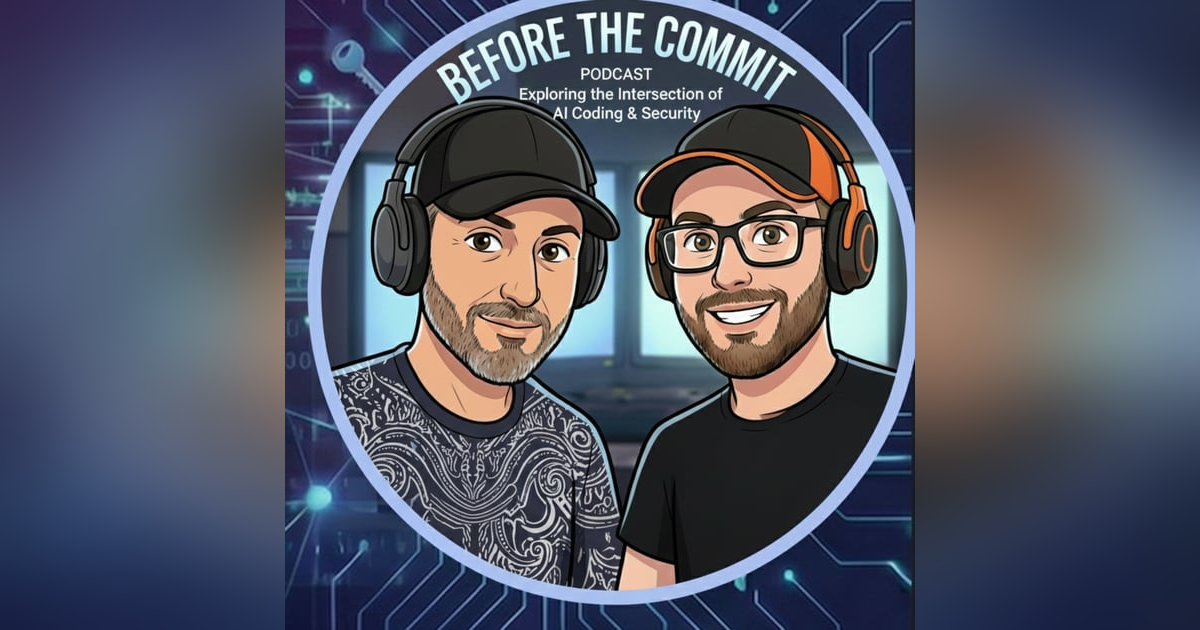Episode 5: AWS Kiro

Before the Commit Episode 5 Summary
Hosts Dustin Hillgartner and co-host discuss Amazon's Kiro (pronounced "Kira Code" or "Cairo Code"), AWS history, AI coding security, and news on AI browsers and emotional distress.
AWS Origins and AI Impact: Amazon started as a 2000s bookstore; hosts recall buying used textbooks. To scale, it built data centers, launching AWS in 2006 with S3 (storage) and EC2 (compute). This revolutionized dev: bypassed IT gatekeepers, enabled API-driven infra via Terraform. Solo devs could launch hits like Facebook. Now, AWS rivals Amazon's e-commerce revenue. AWS CEO: AI boosts devs (80% use it), enhances juniors—not replaces. In booms, more hiring; downturns, efficiency without burnout. Co-host shares X banner: him in Newark data center upgrading DB pre-cloud.
Q Developer Review: Invite-only (easy access); defaults to Claude 3.5 Sonnet (public or Bedrock). GUI-focused like Cursor, not background like Claude Code. Excels in early dev cycle: wizard for Gherkin requirements (user stories + acceptance criteria, e.g., "As player, want [feature] so [benefit]; Given/When/Then"). Then design doc with Mermaid diagrams, classes/patterns. Generates dependency-task Markdown list with VS Code buttons—best seen, topping Claude's single MD or Cursor rules. Autopilot (default) enables edits. Strong on blank projects/initial commits; weak on tests/deployment (manual needed). Bugs: disconnects, file desyncs, npm test quirks. High token use: 80% trial burned fast, ~$100-150/mo for heavy devs—pricier than Claude. Immature on legacy/incrementals vs. Claude. Top GUI AI IDE for planning; learning curve like biking. Beta for feedback/hype.
Security Threats: AI agents run bash/shell cmds (e.g., npm, kubectl). Risks: rm -rf wipes, Kubernetes deletes. No human self-preservation; hack-prone. Solutions: Claude hooks (pre/post-prompt/tool sanitize, redact keys). Settings: user/global (auto-run tests), project-local, repo-shared (deny cmds, lock providers). MCP (next ep): open protocol for LLM tools (e.g., web search for dates, Calendar events). Vendor risk; hooks sanitize APIs (Swagger-like docs for reasoning). Least-privilege: scope skills (list pods vs. rollouts).
News or Noise: 60% Google searches zero-click; Perplexity browser (Meta interest); Cloudflare crawl fees. Sites as LLM seeds? OpenAI tests Chromium AI browser for Mac, agentic ChatGPT as OS—URL-less. Debate: Unneeded (API panes better than browser logins); iPad analogy (co-host underuses his 5yo as dev). Consumers want automation; future: AI-personalized sites, but now lacks curation (YouTube lingers). Traffic: 10% YoY Google drop (May-Jun 2025), non-news 14% (some 25%)—AI Overviews cannibalize ads. Google delayed fearing this; should've AI-first, subscription pivot. Search now "DNS"; curate marketplaces (Shopping/images). Ads future: merit/earned (influencers); LLM oligopoly (free w/ inline ads, paid clean); subsidies end like old ad-click dial-up. Hot takes: Billboards/TV back; no closed venues.
Emotional Distress: NYT on teen suicide via ChatGPT; OpenAI blog: Scale hits crises—not for engagement, but help. Safeguards: Empathetic, refers 988 (US), Samaritans (UK), findahelpline.com. Delays if early signals. LLMs sounding boards (host used for advice), but vulnerable risk reinforcement/sycophancy/hallucinations—youth "friendships" (roasts, crushes). Black Mirror "Be Right Back": Perfect robot despised. Gates: No AI for humanitarian. Bridge to humans (anonymous on-ramp), but irreplaceable bonds. Kudos OpenAI; faster detection/live calls needed.


